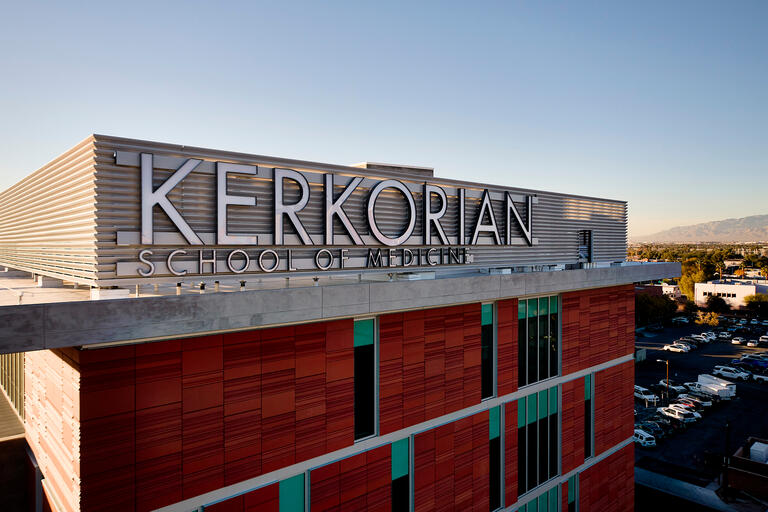As UNLV gives rise to a new semester, the university is also rising to the challenge of creating a more sustainable future. Last week, the university made history as the first institution in the Nevada System of Higher Education (NSHE) to introduce a climate action plan. The plan serves as a comprehensive framework to measure, plan, and reduce greenhouse gas emissions across campus operations, while equipping students with the knowledge and skills to address climate concerns.
“What we do through this initiative will have positive impacts on UNLV and our region for years to come," said UNLV President Keith E. Whitfield in a video address. "We are leading by example, which is what an R1 university like UNLV is supposed to be doing.”
Rebel CAP Strategies and Goals
The Rebel CAP presents UNLV’s strategic vision for climate action, focusing on sustainability, equity, long-term goals, and partnerships. The plan:
- Underscores UNLV’s commitment to reducing greenhouse gas emissions by 50% by 2030 and achieving net-zero emissions by 2057, in time for the university’s 100th birthday.
- Emphasizes the university’s dedication to making the climate crisis a long-term priority, solidifying its leadership role in climate action.
- Focuses on strengthening partnerships, fostering community engagement, and applying principles of climate justice and equity.
- Outlines actionable, realistic, and financially viable steps, ensuring accountability throughout the process.
Where We Stand
UNLV has long prioritized sustainability, with initiatives dating back to 1990, including the introduction of a campus recycling program and the installation of solar panels in 2013.
Recent efforts include generating over 821.5 MWH of solar electricity, diverting over 1,000 tons of waste in 2022, and maintaining five LEED-certified buildings. The campus also features over 4,000 trees, 90% LED campus lighting, and a central plant automation system to further support sustainability.
UNLV Recycling Manager and Sustainability Coordinator Tara Pike, who helped develop the Rebel CAP acknowledged the university’s progress while emphasizing the ongoing work ahead.

“We’ve made great progress in reducing our environmental footprint, but reaching our long-term sustainability goals will require continued collaboration across the entire UNLV community,” Pike said. “It’s critical not only for the well-being of our campus but also to set an example for other institutions. Sustainability is about safeguarding our future and ensuring that we remain resilient in the face of global environmental challenges.”
Alison Sloat, a professor-in-residence in the UNLV College of Sciences, is helping to lead an urban forest initiative aimed at adding thousands of drought-tolerant trees to the community.
She emphasized the significance of the Rebel CAP. “We are working to meet the climate goals set by the U.N. to reduce carbon emissions and greenhouse gas emissions. The only way to achieve that is through action plans like this, and by taking real, concrete steps.”
The Rebel CAP’s Road to Zero-Emissions
Moving forward, UNLV will focus on developing climate action programs, establishing a sustainability office, evolving its capital planning and budgeting models, and leveraging institutional planning alongside student and faculty initiatives to ensure success.
Associate Vice President for Facilities Management Musa Pam, who helped develop the Rebel CAP said this is more than a plan – it’s a call to action.
“We are committed to transforming our campus into a model for sustainability and equity, ensuring that our climate goals are both ambitious and achievable,” said Pam. “By 2030 we will have made significant strides toward reducing emissions and setting a foundation for the next generation to thrive.”
Seven working groups researched and developed recommendations to achieve the zero emissions goal. Below are key actions the university plans to implement. For the full list of recommendations, visit the UNLV Climate Action Plan webpage.
Academics and Research
- Introduce a mandatory three-credit sustainability course for all undergraduates to prepare students with critical thinking and problem solving skills needed for a sustainable future.
- Create an Academic and Research Sustainability Institute, which will oversee faculty research and academic projects, aiming to generate innovative climate solutions.
Buildings and Energy
- Conduct audits to identify areas for energy efficiency improvements in buildings, focusing on HVAC, lighting, and insulation.
- Assess renewable energy systems like solar panels to improve energy efficiency generation and explore new renewable energy options.
- Implement a real-time system to monitor energy consumption and CO2 emissions, integrating smart meters and renewable energy sources.
Green Procurement and Policies
- Establish an Office of Sustainability to oversee the Rebel CAP, coordinate efforts, and submit annual sustainability reports.
- Join the Sustainable Purchasing Leadership Council (SPLC) to enhance sustainable procurement and collaborate with leaders in the field.
- Prioritize green-certified products, track purchases, and promote reusable items for university events.
Stewardship and Climate Justice
- Consider climate justice and equity in all recommendations and initiatives, while creating a marketing campaign to inform underserved communities about recycling services.
- Extend student outreach by presenting the Rebel CAP to student organizations, encouraging diverse student participation and input in sustainability efforts.
Sustainable Transportation
- Expand bike lockers and create a dedicated bike path to promote bike and scooter use while enhancing safety for pedestrians on campus.
- Integrate solar covered walkways and parking lots to enhance pedestrian movement.
Waste Management
- Develop outreach programs and social media campaigns to educate the campus community on waste reduction, recycling habits, and sustainability, including events like Earth Month and waste management competitions.
- Form a zero waste committee to create a strategic plan, set waste reduction goals and track waste data, supported by a dedicated zero waste manager to oversee sustainability efforts across campus.
Water Resource Management
- Implement data tracking and metering to identify areas of high water use, local water leaks, and improve the efficiency of the water distribution network, including obtaining funding for necessary equipment.
- Continue replacing high-water-use turf with drought resistant landscaping and collaborate with experts and initiatives, such as the $5 million urban forest project, to enhance water conservation efforts.
What’s Next?
The new UNLV Sustainability Advisory Council will serve as the advisory body overseeing the Rebel CAP implementation. Rebel CAP working groups will reconvene this fall and begin to prioritize recommendations for implementation.
Be Part of the Change
“You can integrate your interest into meaningful action to combat climate change,” said Melanie Sanchez, a sophomore geology major at UNLV.
Sanchez, who lives in east Las Vegas, is deeply aware of the urban heat island effect in her neighborhood. She notices a stark difference in temperature compared to other parts of the city, which has motivated her to get involved. Now, she’s encouraging fellow students to do the same.
By joining these university led initiatives, you’ll help cut down our carbon footprint and show some love to the environment. Plus, you’ll be part of a community that’s shaping the future of sustainability – right here on campus and beyond.
For ongoing updates and opportunities to participate in sustainability initiatives, visit the Rebel CAP website.



